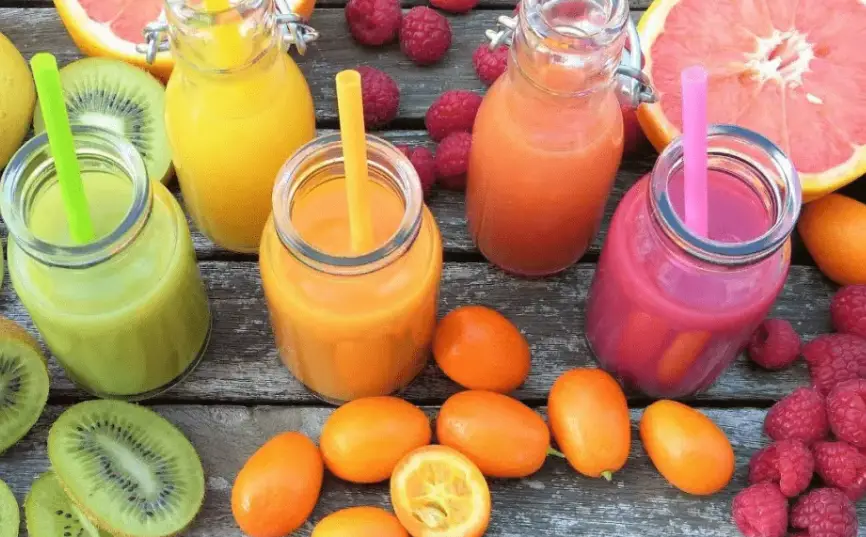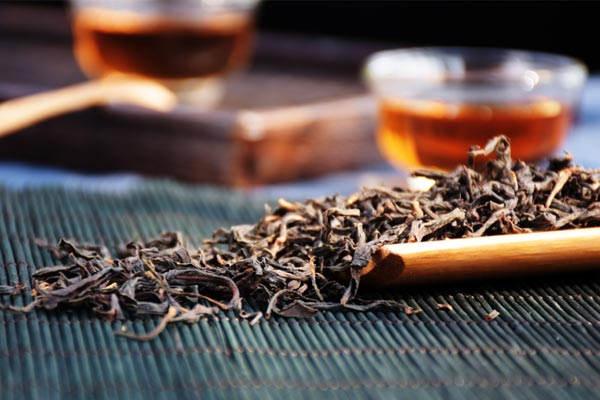With changes in lifestyles and dietary habits, the number of overweight and obese people is increasing.
Fruit first makes us think of being juicy, sweet and sour, rich in dietary fiber and vitamins, and very filling.
There are countless online rumors about eating fruit for weight loss. But is it reliable? The truth is: it's not certain.
Some fruits aren't sweet, but they still contain plenty of sugar. Others are soft and chewy, highly nutritious, but also high in calories. Eating them as a meal might make them less appealing than a bowl of rice.
These fruits are often high in energy and sugar, but low in dietary fiber, making them unsuitable for weight loss meal replacements.
Here are six fruits that are nutritious and delicious, but require limited intake.

Avocado
Avocado, also known as avocado pear, camphor pear, avocado, and alligator pear, is a highly nutritious fruit. It contains a variety of vitamins, rich fatty acids, and protein, and is also high in sodium, potassium, magnesium, and calcium. Its nutritional value is comparable to that of butter, earning it the nickname "forest butter." It is also rich in folic acid, vitamin B6, and dietary fiber.
Avocados have a very high fat content (15.3g/100g), but the fat is primarily composed of monounsaturated fatty acids, particularly oleic acid. Each 100g of avocado contains a staggering 171 kcal, equivalent to 147g of rice (about 2 to 3 bowls). Therefore, it's best to reduce your intake of staple foods.
Durian
Durian has a strong aroma, praised by those who love it and resented by those who dislike it. It's undeniable that durian is rich in vitamin C, vitamin A, folic acid, vitamin B2, potassium, calcium, various amino acids, and phytoactive ingredients (such as flavonoids and anthocyanins), which can regulate metabolism and enhance immunity. The flesh is rich in carbohydrates. Every 100 grams of durian contains 28.3 grams of carbohydrates and a whopping 150 kcal of calories, equivalent to 129 grams of rice. One gram of fat metabolized in the body produces 9 kcal of energy. Durian contains 3.3 grams of fat per 100 grams, 33 times the fat content of mangoes (0.1 grams per 100 grams) and 16.5 times the fat content of oranges (0.2 grams per 100 grams). This makes it a typical high-fat, high-sugar, and high-calorie fruit. This means that eating the same weight of durian will result in a higher calorie intake than eating other fruits. Now, you can easily understand the metaphor of durian being a "stumbling block" to weight loss. Be careful to control your intake when consuming it.
Jackfruit
Jackfruit, also known as jackfruit, ox belly fruit, honey-wrapped fruit, and tree jackfruit, has a sweet and fragrant flavor. It promotes salivation, relieves restlessness, and helps soothe hangovers, invigorating the spleen. It is a premium fruit. The flesh of the ripe fruit is rich in carbohydrates, protein, B vitamins (B1, B2, B6), vitamin C, potassium, and magnesium.
Every 100 grams of jackfruit contains 25.7 grams of carbohydrates and a whopping 105 kcal, equivalent to 91 grams of rice. This is three times the calories of cantaloupe (34 kcal/100 grams) and nearly twice the calories of apple (53 kcal/100 grams), making it a typical high-sugar fruit. Therefore, those seeking weight management or those experiencing overweight or obesity should exercise moderation when consuming jackfruit.
Winter Jujube
Winter Jujube, also known as Yanlaihong, Apple Jujube, or Rock Sugar Jujube, is delicious, crispy, tender, juicy, and sweet, fragrant, and extremely nutritious. Winter jujubes, known for their sweet and sour flavor, are renowned for their high vitamin C content, which is unmatched among fruits. Every 100 grams of fresh fruit contains 243 mg of vitamin C, over four times the amount in hawthorn (53 mg/100 grams). Just three jujubes meet the recommended daily intake of vitamin C for a healthy individual, providing a quick source of vitamin C and preventing oral ulcers and bleeding gums.
In addition, winter jujubes contain a variety of minerals, vitamins, and dietary fiber. They contain phenols, flavonoids, proanthocyanidins, and triterpenoids, which can help the body scavenge excess oxygen free radicals, slow aging, and prevent cancer. In fact, the sugar content of winter jujubes is quite high, reaching a staggering 27.8 grams per 100 grams. The calories are a whopping 113 kcal, equivalent to 97 grams of rice. This is nearly three times the calories of plums (38 kcal/100 grams) and more than twice the calories of early summer pears (50 kcal/100 grams), making them quite high in calories. Eating three to five jujubes daily provides approximately 50 to 80 kcal, similar to the calories in an apple, making it perfectly acceptable. However, those seeking to lose weight should exercise caution if eating more.
Banana
Banana is a typical tropical and subtropical fruit, soft, sweet, and enjoyable for all ages. It contains a variety of minerals and vitamins. Vitamin A promotes growth, boosts immunity, and is also beneficial for vision. Vitamin B1 fights beriberi, promotes appetite, aids digestion, and protects the nervous system. Vitamin B2 promotes normal growth and development. Bananas, in addition to stabilizing serotonin and melatonin levels, are rich in magnesium, which promotes muscle relaxation and relieves fatigue.
Every 100 grams of bananas contains 22 grams of carbohydrates and 93 kcal, equivalent to 80 grams of rice. In some tropical regions, bananas are a staple food and often used as a staple. Due to their high sugar content, excessive consumption can lead to overweight and obesity. For those with overweight or obesity, bananas can be used as a staple food, but portion control is advised.
Snow Pear
Named for its white, snow-like flesh, the snow pear is tender and juicy, boasting numerous therapeutic benefits, including promoting thirst, relieving phlegm and cough, moistening the lungs, reducing fat and blood pressure, promoting diuresis and reducing swelling, and nourishing the skin. Rich in vitamins and dietary fiber, including calcium, phosphorus, iron, and iodine, eating pears regularly can help prevent constipation. Despite having a water content of 78.3%, every 100g of snow pears contains 20.2g of carbohydrates and 79 kcal, equivalent to 68g of rice. Its carbohydrate content is nearly double that of duck pears (11.1g/100g) and crispy pears (11.4g/100g), making it a relatively high-carbohydrate fruit. It's best to limit your consumption to no more than one pear per day.
Essential qualities of fruit for weight loss
To achieve weight loss through fruit consumption, it must possess the following characteristics: high water content, low energy and sugar content, and rich in dietary fiber for a strong sense of satiety.
The following are some common fruits recommended for weight loss (generally containing less than 10% carbohydrates).
- Pome Fruits: Sour Pear, Dry Apple, and Pear;
- Drain Fruits: Kubo Peaches, Apricots, Plums, Plum Apricots, Golden Red Peach, and Green Plum;
- Berries: Mare's Milk Grapes, Strawberries, and Other Fruits;
- Citrus: Grapefruit, Mandarin Oranges, and Lemons;
- Tropical and Subtropical Fruits: Loquat, Mango, Star Fruit, and Bayberry;
- Melons: Watermelon and Honeydew Melon.
Although these fruits are generally low in sugar, the key to weight loss is controlling your total calorie intake. For example, while apples contain only 53 kcal per 100 grams, 200 grams of apples have the same calories as 100 grams of bananas.
In addition to eating low-sugar fruits and controlling your intake, a balanced diet, a regular sleep schedule, and adequate exercise are also crucial.

%20--%3e%3c!DOCTYPE%20svg%20PUBLIC%20'-//W3C//DTD%20SVG%201.1//EN'%20'http://www.w3.org/Graphics/SVG/1.1/DTD/svg11.dtd'%3e%3csvg%20version='1.1'%20id='图层_1'%20xmlns='http://www.w3.org/2000/svg'%20xmlns:xlink='http://www.w3.org/1999/xlink'%20x='0px'%20y='0px'%20width='256px'%20height='256px'%20viewBox='0%200%20256%20256'%20enable-background='new%200%200%20256%20256'%20xml:space='preserve'%3e%3cpath%20fill='%23FFFFFF'%20d='M194.597,24.009h35.292l-77.094,88.082l90.697,119.881h-71.021l-55.607-72.668L53.229,232.01H17.92%20l82.469-94.227L13.349,24.009h72.813l50.286,66.45l58.148-66.469V24.009z%20M182.217,210.889h19.566L75.538,44.014H54.583%20L182.217,210.889z'/%3e%3c/svg%3e)




